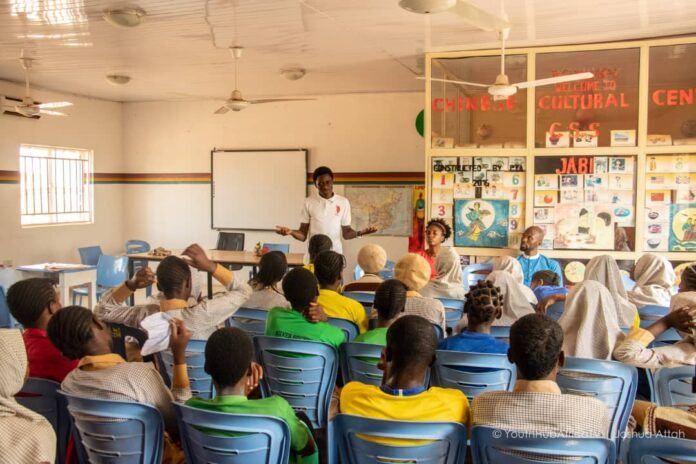EDUCATION- The new administration in Nigeria faces the task of reimagining education in the country, as the sector continues to grapple with various challenges that hamper the country’s economic growth and development. Critical stakeholders have developed a blueprint for the new administration to tackle these issues.
Education plays a crucial role in a child’s development, shaping their abilities, attitudes, and behaviors that contribute to society’s overall well-being. Despite education’s importance to national development, it is disheartening to note that the Nigerian education system has been hindered by various upheavals, which pose a threat to the country’s economic growth, political progress, and social prosperity.
Challenges of the Education sector: What figures say
The education sector in Nigeria faces several challenges, as indicated by available statistics. Nigeria, being a complex country, requires expert financial planners to manage its education funds. It is crucial that all funds allocated for education, including foreign grants and other forms of financial aid, are used solely for the intended purpose. This is the only way to guarantee proper funding.
Despite successive Nigerian governments’ claims to allocate more funds for education, the sector’s budgets have never met international standards. For example, Nigeria has pledged to allocate four percent of its Gross Domestic Product (GDP) and 25 percent of the national budget for education by 2025. However, stakeholders have reported that the federal government’s education sector received its lowest budgetary allocation in a decade. The 5.39 percent allocation in 2022 represents a 50 percent reduction from the 10.79 percent earmarked for education in the national expenditure in 2015.
Stakeholders have highlighted other challenges affecting the education sector, such as insecurity and poverty. In 2014, Boko Haram insurgents attacked the Government Girls Secondary School in Chibok Town, Borno State, and abducted approximately 276 female students aged between 16 to 18, marking the worst attack on education in Nigeria’s history.
“Insurgency continually ravages the Northeast, while bandits kill and kidnap in North-West and North-Central. In the South-West, there were minute cases of kidnappings and thuggery, while the South-East experiences cases of unknown gunmen on a rampage and the South-South has oil bunkering, and militancy that has aggravated into kidnapping, as well. These crises have had adverse effects on education, including school closures, and the killing and abduction of teachers and government officials. Poverty is another major issue affecting the education sector, with millions of Nigerian children unable to attend school due to financial constraints. The Global Education Monitoring (GEM) report by the United Nations Educational, Scientific, and Cultural Organisation (UNESCO) estimated that there are 20 million out-of-school children in the country as of 2022.
Stakeholders’ manifesto to the New Administration
The Nigerian education sector is faced with a multitude of problems, but there is hope for improvement. YouthHubAfrica, with the support of the Malala Fund and other notable CSOs, has developed a manifesto that will guide the Nigerian education system as the new government takes office on May 29th, 2023.
Discussing the need to reimagine the education system in Nigeria, the Program Manager of YouthHubAfrica, Mr. Olusegun Medupin,, explained that there are two key issues that CSOs are advocating for access and quality. Notably, Nigeria has one of the highest rates of out-of-school children in the world, as recent figures have shown.
The Program Manager emphasized that the quality of education is the second most crucial factor. Despite the significant investments made by federal, state, and local governments in the education sector, the majority of Nigerian children who complete primary school lack adequate literacy and writing skills.’’
Therefore, there is a need to address the quality of education in Nigeria. The government must provide additional resources and use them effectively to prevent financial mismanagement. Furthermore, data and research tools should be utilized to direct resources to where they will have the most meaningful impact.”
Mr. Olusegun Medupin, further stated that many state governors in Nigeria are primarily focused on constructing new classrooms as a popular way to showcase their achievements to the community during re-election campaigns. While this is commendable, he suggests that they should also consider implementing non-tangible projects such as teacher training, stocking libraries with books, providing laboratory materials, ensuring timely and fair payment of teachers, and monitoring students’ numeracy and literacy skills, which are undoubtedly the primary benefits of education.
“For me, this is the focus and we want to see more state governments invest in quality education and ensure that no one, irrespective of their financial status, ethnicity, or religion is left out of benefitting from the standardised public education across Nigeria.”
Joshua Arogunyo, a social intervention specialist at the Almajiri Child Rights Initiative, emphasized the importance of safety, security, and funding in schools. Arogunyo stated that school safety is a necessity, as learning cannot take place without it. He urged the government to implement safety measures by revisiting the Safe School Initiative Project and addressing the accountability issues that have arisen. Arogunyo also suggested that security personnel should be stationed at school gates in areas that are prone to conflict, while schools should be fenced to prevent intruders from easily accessing the premises.
Arogunyo further disclosed that approximately 70 percent of the out-of-school children in Nigeria are from the Almajiri system. He urged the newly elected government to prioritize the education of these children by integrating the Almajiri system into the formal educational system.
“The welfare of the Almajiri system should be a priority for the government. Despite the existence of the Child Rights Act, many children in the system still face harsh conditions, such as sleeping on the floor and going hungry. It’s essential to implement quality measures to address these issues,” said Mr. Joshua. He further added, “To regulate and improve the Almajiri system, the government needs to establish a time frame and curriculum that integrates both literacy and vocational skills. Additionally, it’s crucial to link the Almajiri to formal learning centers and schools.” Overall, the government needs to take significant steps to structure and regulate the Almajiri system to ensure the welfare and education of these children.
Mrs. Odinakachi Ahanonu, a policy advisor at the Civil Society Action Coalition on Education for All (CSACEFA), emphasized the urgent need for the government to address issues such as out-of-school children, gender inequality, and girl-child education. She pointed out that in 2020, the federal government had committed N220 billion (a credit facility from the World Bank) to the Better Education Service Delivery for All (BESDA) in 17 states of the federation. The primary goal of the BESDA program is to increase access to education for out-of-school children, enhance literacy rates, and promote accountability at the basic education level.
In addition to BESDA, UBEC launched the Open School Programme (OSP) in 2020 to cater to out-of-school children, with a flagship in six states in Nigeria. The OSP is a flexible educational system that allows learners to receive education from wherever they are and at any time, without relying on conventional schools or teachers.
Ahanonu stressed that addressing these issues is the primary responsibility of the government at all levels and should be supported by other key stakeholders such as development partners, the private sector, civil society organizations, and community and religious leaders. Regarding gender inequality and girl-child education, Ahanonu highlighted the need to ensure that the girl-child has equal access to quality, safe, and inclusive education, including adequate infrastructure, safe environments, and qualified teachers’ training. She also called for an end to systemic gender biases, discrimination in school enrollment, female genital mutilation (FGM), and child marriage, emphasizing that the practice of making the girl-child a second-class citizen and object of different forms of violence must stop.
Oriyomi Ogunwale, the team lead at Eduplana Data and Tech, has emphasized the need for the new administration to give priority to digital education. Ogunwale expressed concern that even three years after the Covid-19 lockdown, Nigeria has yet to develop a comprehensive digital solution for education. He recommended that the federal government equip schools with computers and internet access to address potential disruptions like the Covid-19 era. Ogunwale also suggested that the federal government create a central system for sharing digital resources across all schools, including those in underserved and rural communities. Additionally, he urged the government to continue radio learning, which was adopted by state governments during the pandemic, as a means of preparing students for potential future disruptions.
Sola Fagorusi, the executive director of Onelife Initiative, emphasized the importance of free and high-quality education. “Education should be free, at least up to a certain level. Primary and secondary education should be free and of good quality. It should not only be free, but also compulsory, as the quality of education received by today’s children and adolescents determines the quality of a nation’s future,” Fagorusi stated.
He also highlighted the long-term impact of education, stating, “If you want to understand the impact of education, or its lack thereof, on a country’s tomorrow, look at where the Almajaris of the 1990s are today.”
Furthermore, Fagorusi stressed that improving the quality of education goes beyond simply allocating funds to the educational sector. He stated, “The quality of education is more than just throwing funds at the educational sector, even though this is also very important. It is more than allocating the largest portion of the budget to education. It is first about having a deep-seated political commitment matched with state-of-the-art approaches and tools.”
Rotimi Olawale, writes from Abuja, is the Executive Director, YouthHubAfrica
Email – [email protected]









